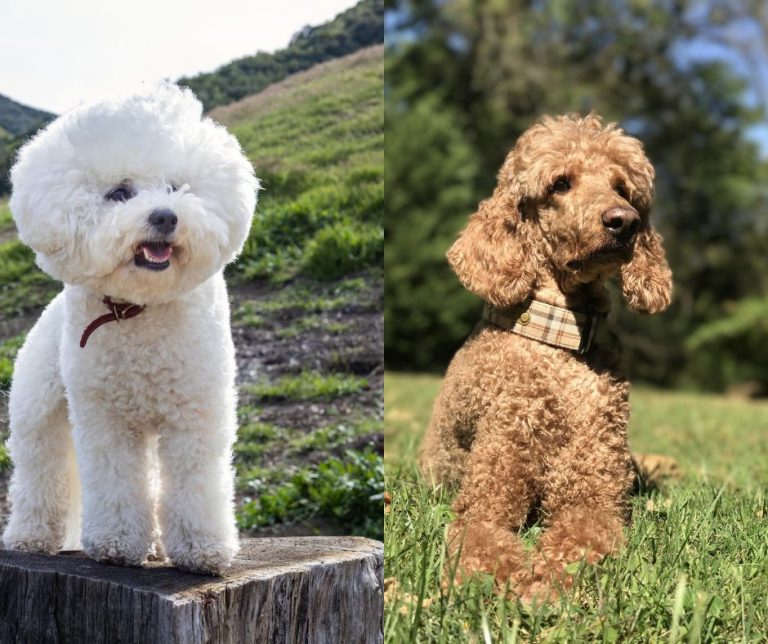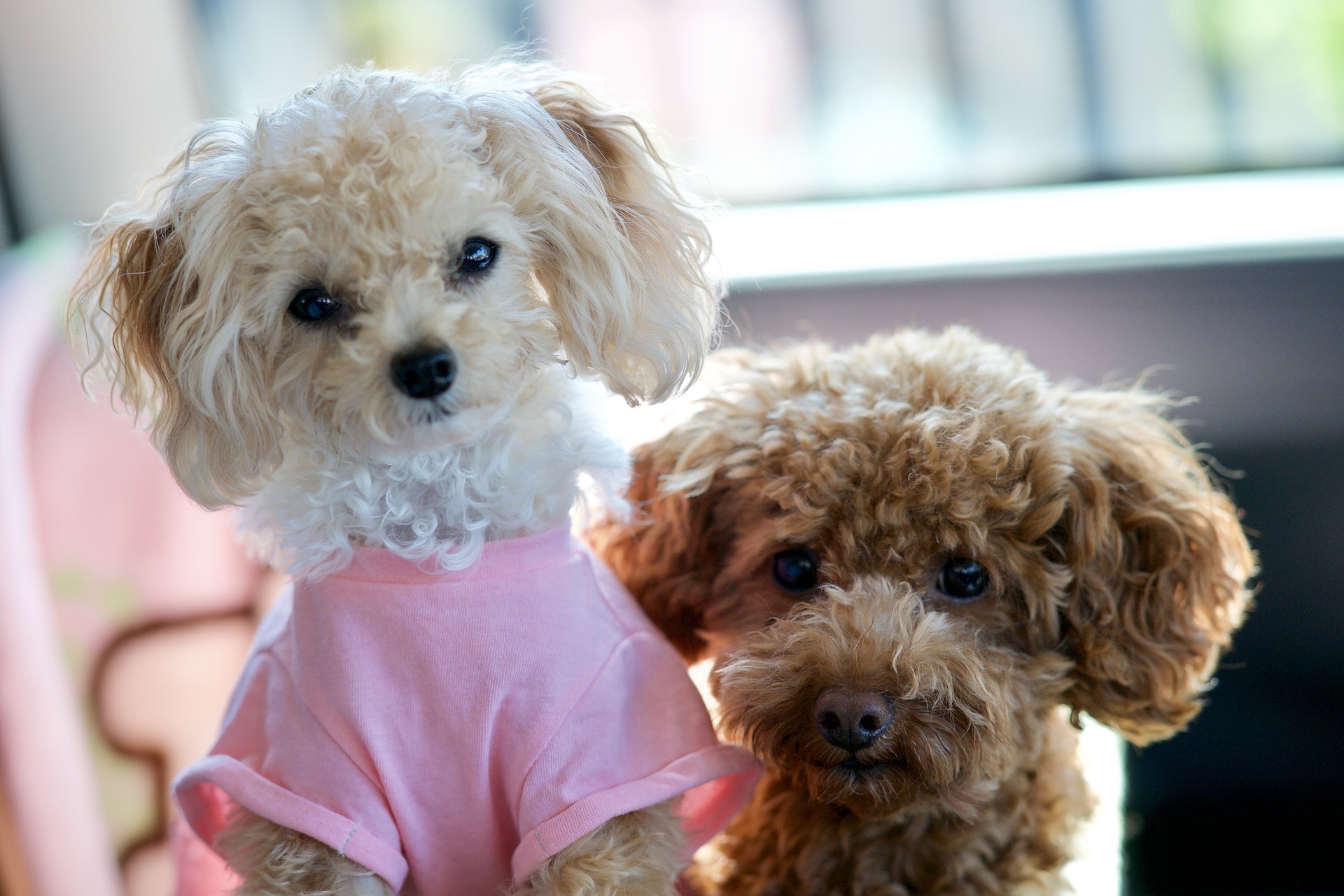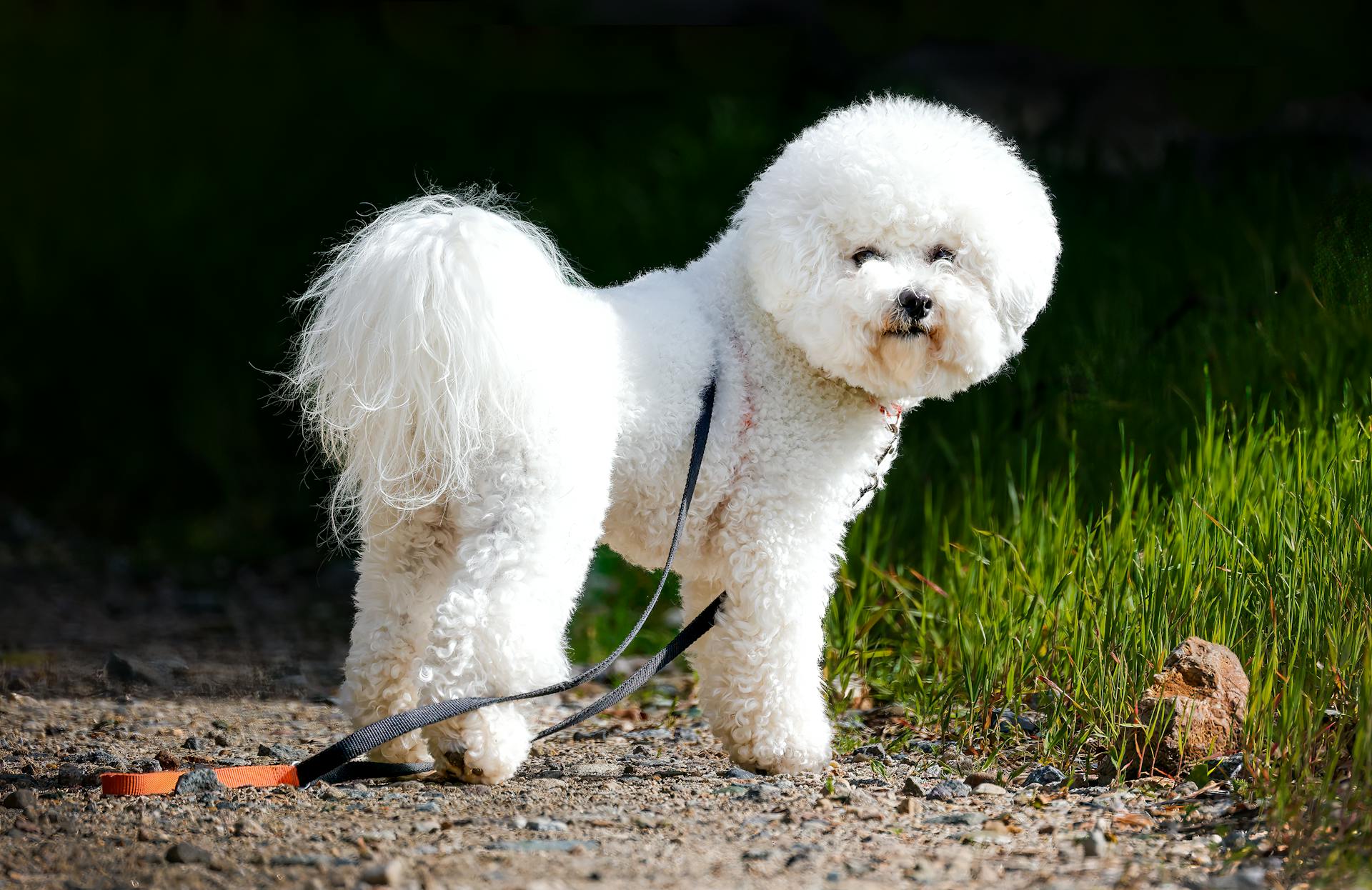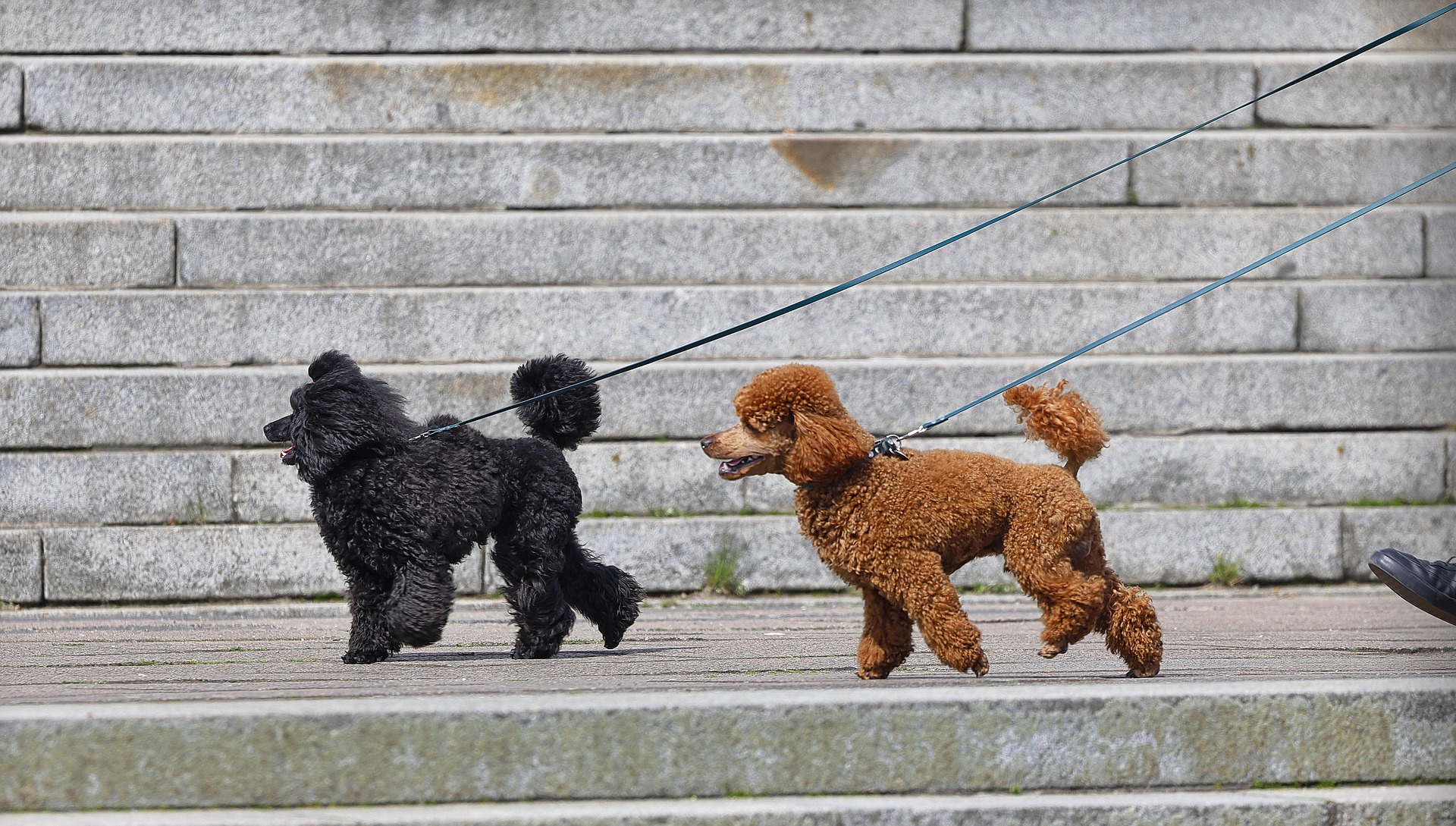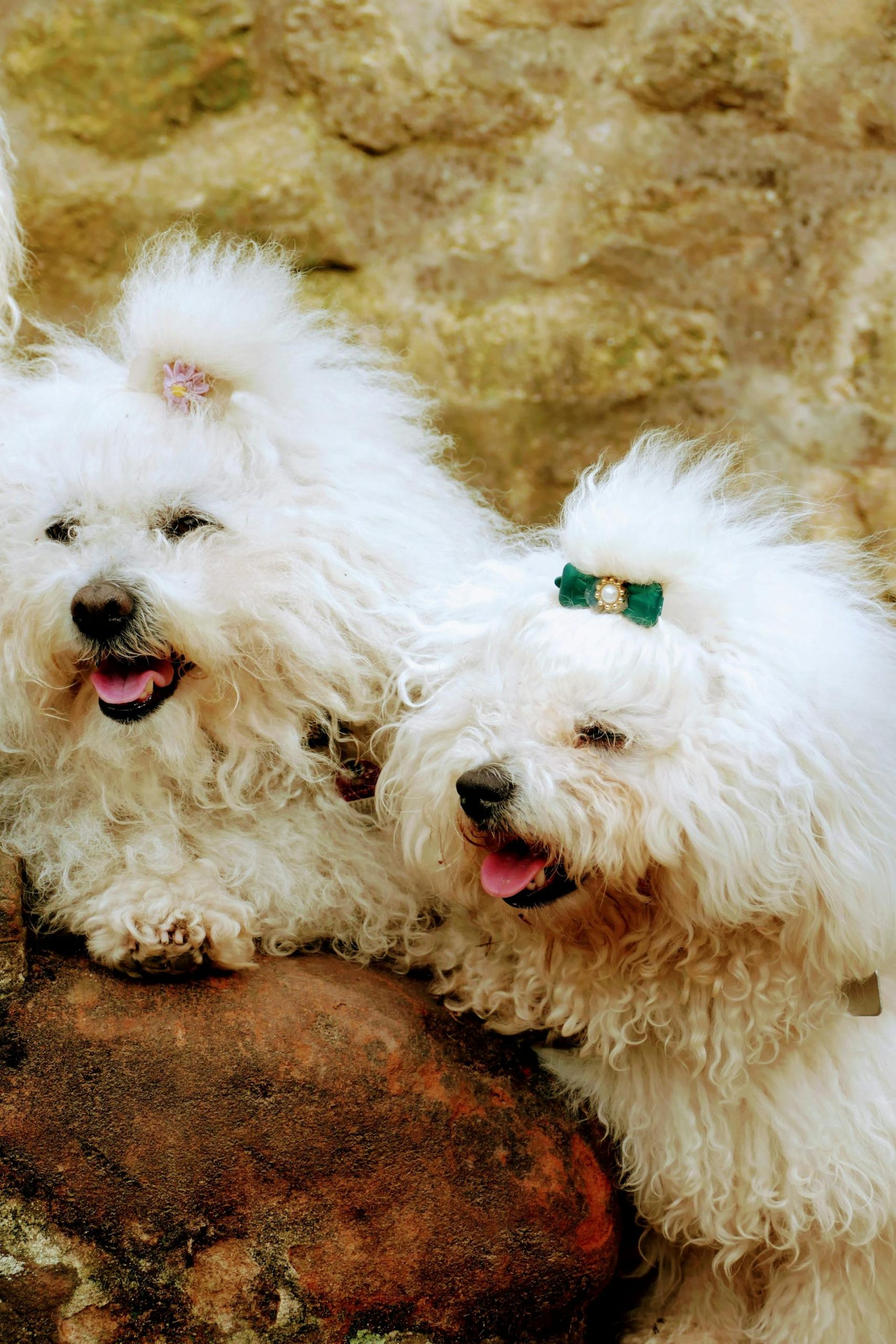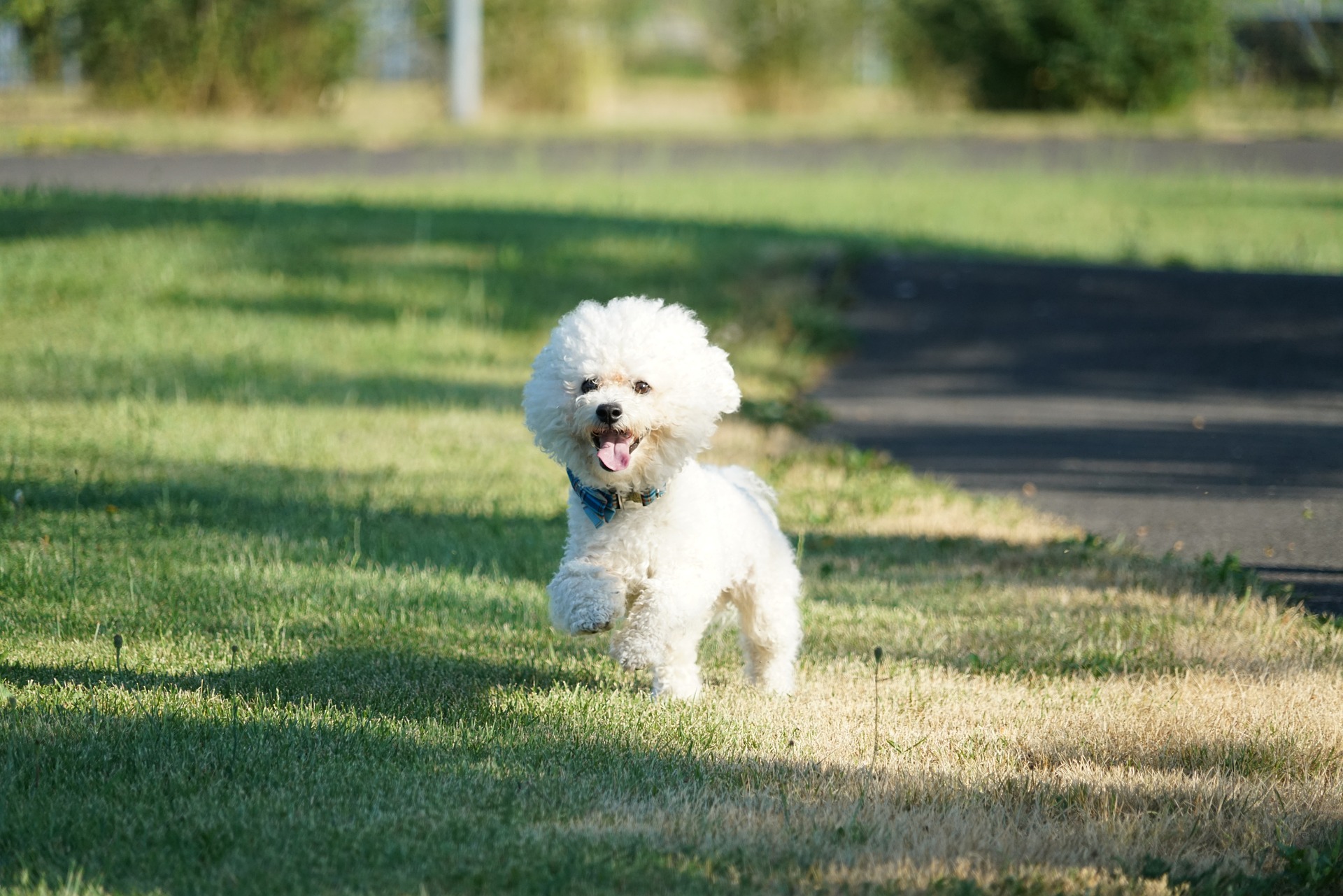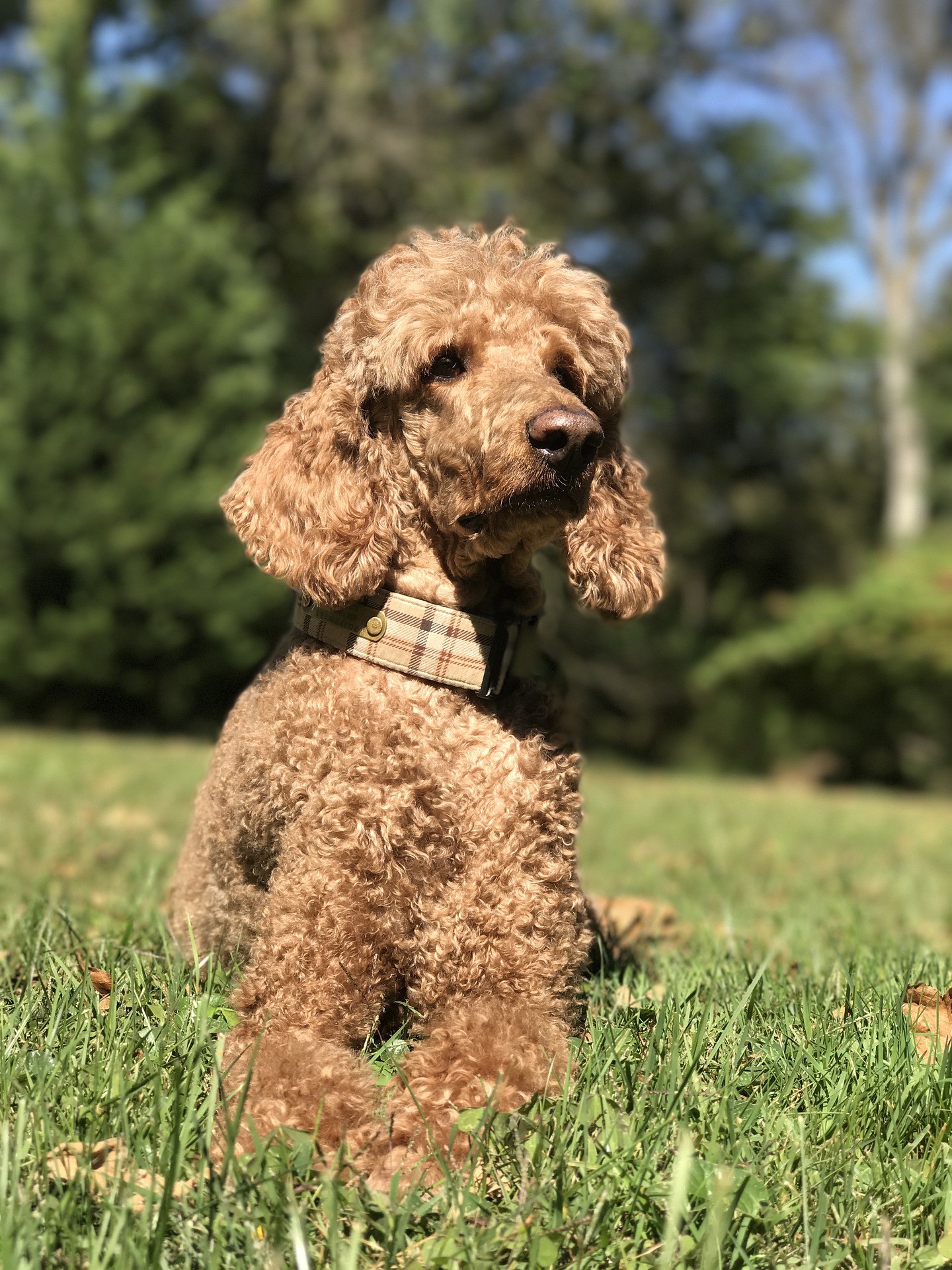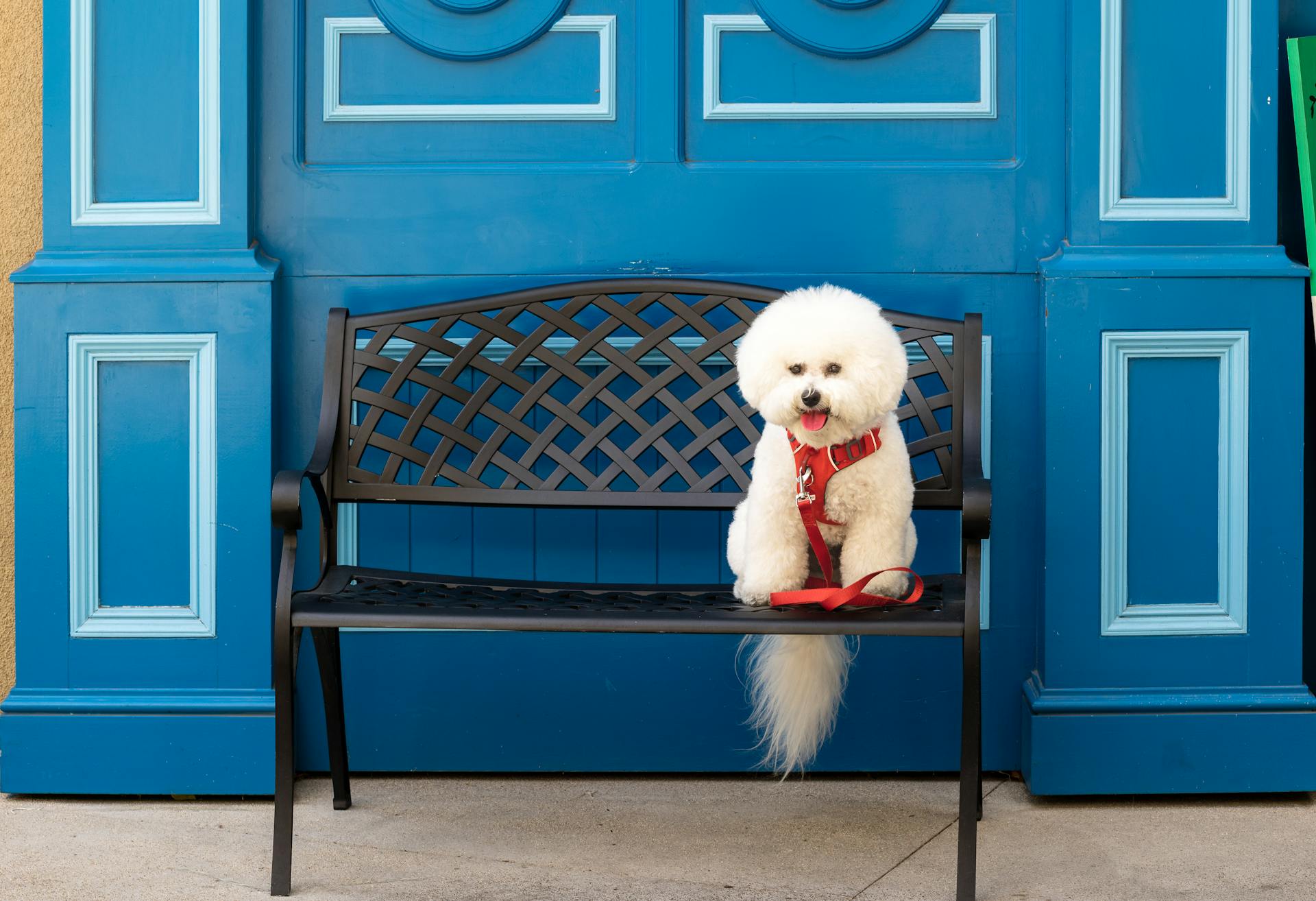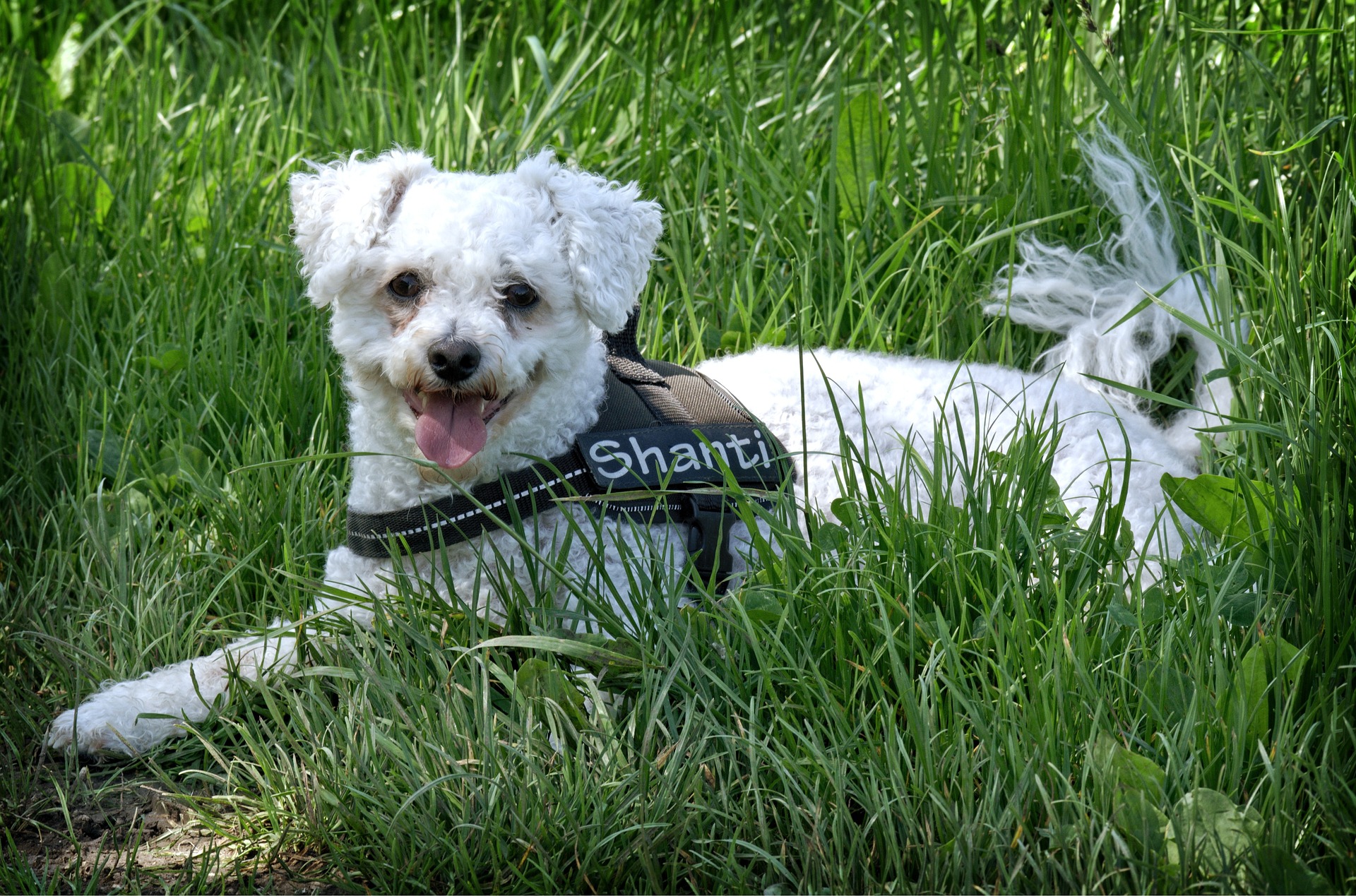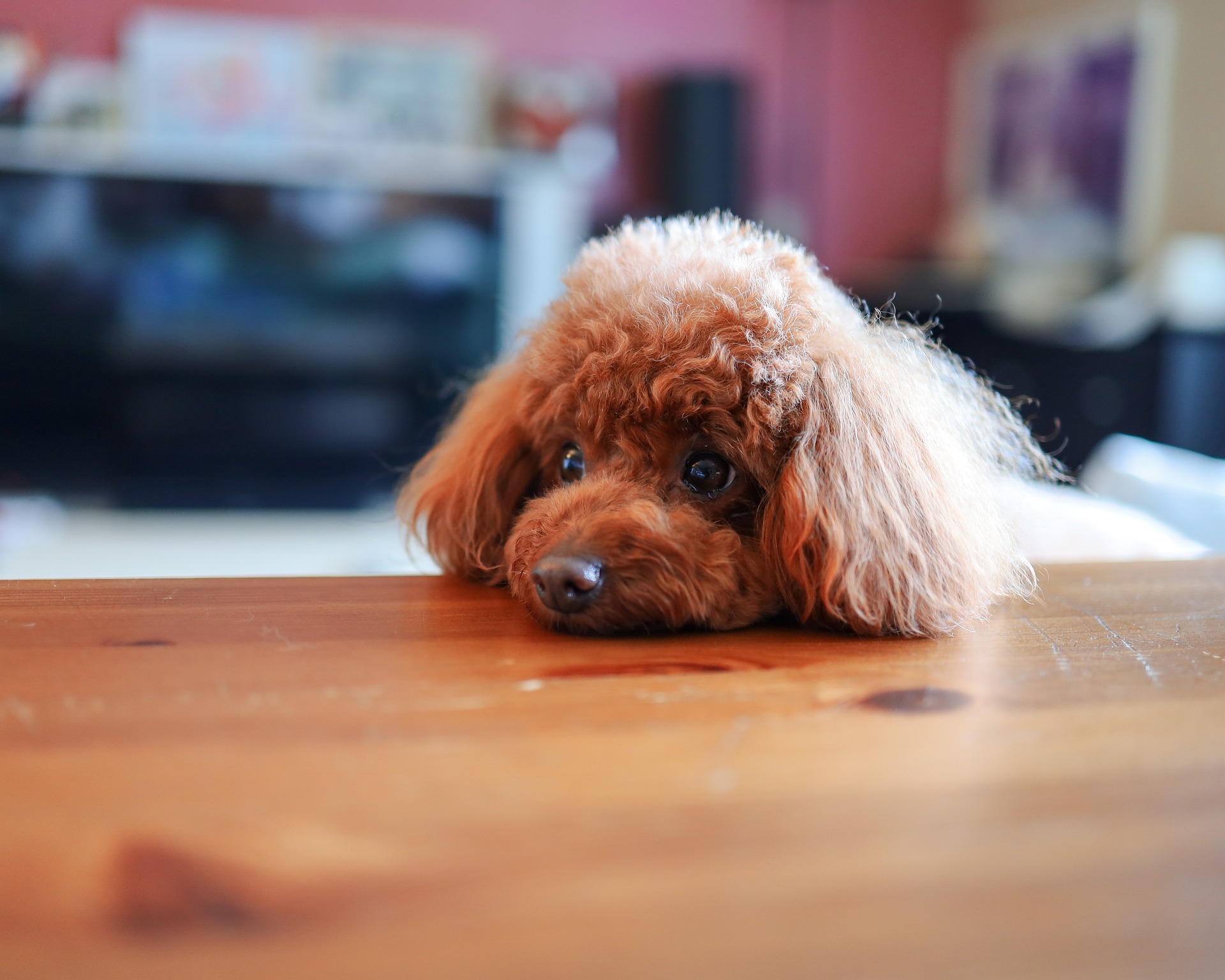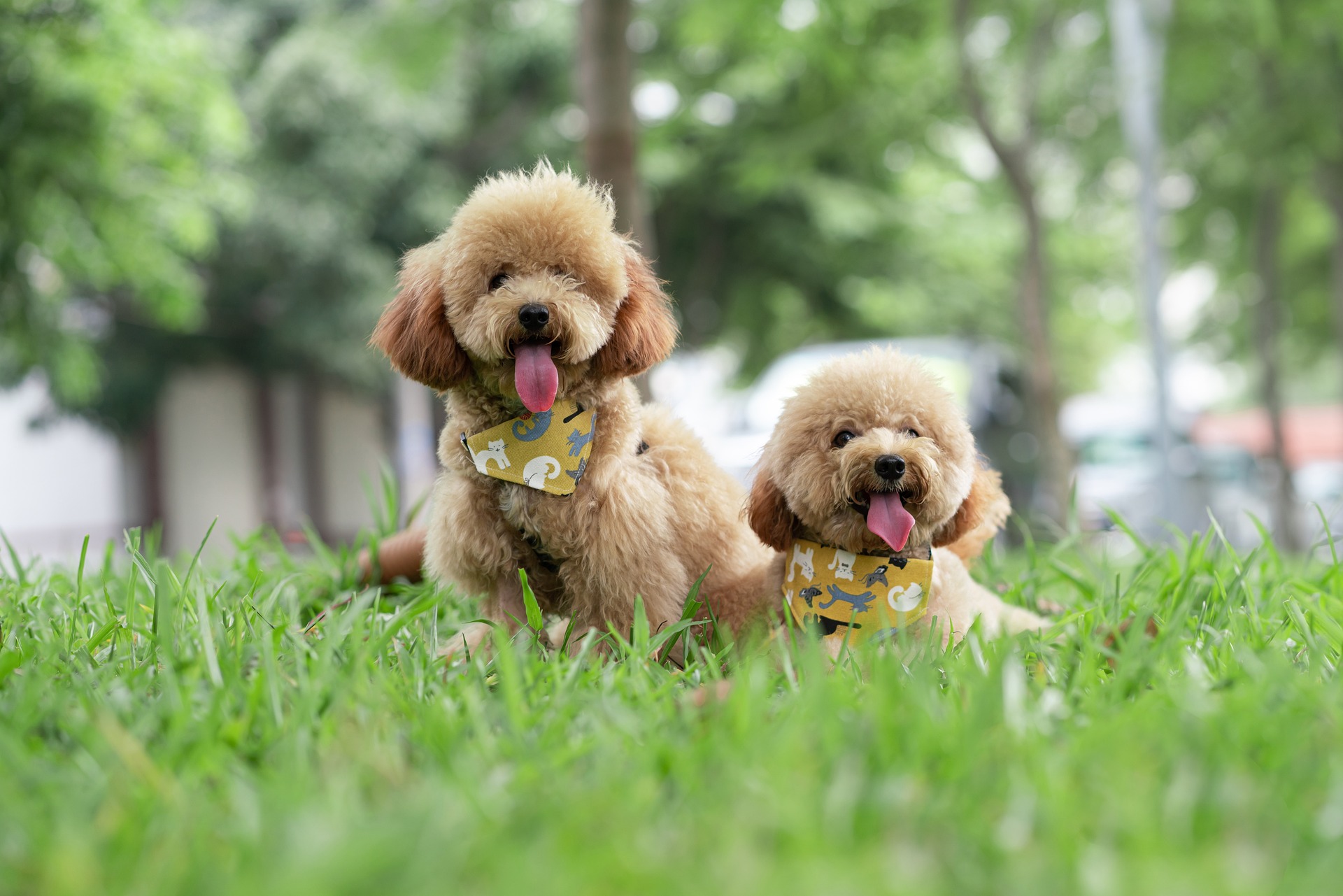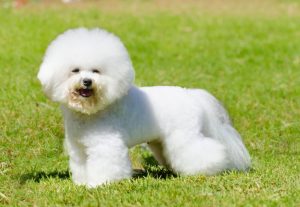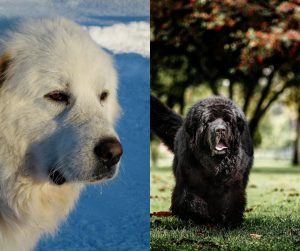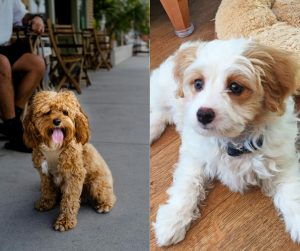When exploring the fluffy and affectionate world of small dog breeds, the Bichon Frise and Poodle often emerge as top contenders for pet lovers. Each breed offers a distinctive blend of charm and intelligence wrapped in a cuddly package.
Distinguishing between these two breeds comes down to understanding their unique characteristics, from their origins to their grooming requirements.
While they both possess a cheerful demeanor, the Bichon Frise and Poodle possess different historical backgrounds that have shaped their modern-day personalities and physical traits.
The Bichon Frise, often recognized for its soft, white coat and expressive eyes, is similar in size to the miniature Poodle, yet they vary when it comes to their lineage and historical purpose.
Poodles, on the other hand, are notable for their variety in sizes ranging from toy to standard, and their curly coats come in an impressive spectrum of colors.
Choosing the right dog for one’s lifestyle means considering the breed’s health, care needs, adaptability, and the commitment required over the dog’s lifetime.
Whether one gravitates towards the vivaciousness of the Bichon Frise or the elegance of the Poodle, potential owners must ponder the long-term responsibilities involved in nurturing these affectionate canine companions. So, with that in mind, let’s take a look at the Bichon Frise vs Poodle dog breed comparison.
Key Takeaways
- The Bichon Frise and Poodle are both intelligent, affectionate breeds with distinct backgrounds
- Poodles offer more size and color variations, while the Bichon Frise is uniformly small with a white coat
- Prospective owners should consider each breed’s care needs and adaptability to their lifestyle
Breed Origins and History
When considering the Bichon Frise and Poodle breeds, their rich and diverse histories reveal a tapestry of culture, nobility, and purposeful breeding. Let’s delve into their origins to appreciate how these beloved breeds emerged.
Bichon Frise Beginnings
The Bichon Frise, it seems, has its paws firmly planted in the Mediterranean. Originating from the Barbet or “Barbichon” family, which includes other similarly fluffy dogs like the Maltese, the breed was refined largely by Italian sailors who favored the dog for its cheerful disposition and silky white coat.
They became quite the treasured companions for Italian nobility and eventually found favor among French royalty. As the breed’s popularity soared, so did its association with prestige, leading to its moniker as a quintessential lap dog of the Renaissance.
Over time, the “Barbichon” was truncated to “Bichon,” and the “Frise,” meaning curly, was added to describe its distinct coat.
Poodle Heritage
The Poodle’s history points to Germany, where they are believed to have been bred for duck hunting, their intelligent and eager-to-please nature making them perfect for retrieval.
The breed’s name is thought to derive from the German word “Pudel,” relating to splashing in water, a nod to its hunting roots.
Despite its Germanic beginnings, France warmly embraced the Poodle, refining it further and, in due course, pronouncing it their national dog.
They come in three distinct sizes—Standard, Miniature, and Toy—catering to a variety of lifestyles and serving different roles from hunting to circus performing.
The breed’s unmistakable curls are a blend of beauty and function, protecting them from the elements during their aquatic endeavors.
Physical Characteristics and Appearance
When considering a Bichon Frise vs Poodle, one must take into account their distinct physical attributes. While they both boast an elegant appearance, their size, height, weight, and coat differ notably which gives each breed its unique charm. When we talk about appearance, we have to note that the American Kennel Club recognizes three sizes for the Poodle. Those are Standard Poodle, Toy Poodle, and Miniature Poodle. Now, they are not recognized as a separate breed.
Size Differences
Bichon Frise:
- Height: Generally measures 9.5 to 11.5 inches tall at the shoulder
- Weight: Typically weighs between 11 to 18 pounds
Poodle:
- Comes in three sizes:
- Toy Poodle: Up to 10 inches tall, weighing 4-6 pounds
- Miniature Poodle: Ranges from 10 to 15 inches tall, weighing 10-15 pounds
- Standard Poodle: Stands about 18-24 inches tall, with a weight that can be anywhere between 40 to 70 pounds
Coat Variations
Bichon Frise:
- Coat: Possesses a soft, curly coat that is predominantly white
- Shedding: They shed less, which is often a consideration for those with allergies
Poodle:
- Coat: Features a distinctive curly coat that can come in a variety of colors such as white, black, apricot, and gray
- Hair: Their hair is known for being hypoallergenic with minimal shedding, which is the same reason they’re favored by allergy sufferers
- Coat Colors: Poodles offer a more colorful palette compared to the Bichon Frise, and they also have the added appeal of a variety of coat patterns
Both breeds require regular grooming to keep their coats in prime condition, but the Poodle’s potentially larger size and varied coat colors could mean a bit more time spent at the groomer’s. They are loved for their fancy, yet easy-to-maintain, hairdos that add to their dignified appearance.
Bichon Frise vs Poodle Personality and Temperament
When it comes to the Bichon Frise and the Poodle, they’re both known for their delightful companionship and their bright dispositions. Yet, each breed brings its own particular set of qualities that can charm any dog lover.
Bichon Frise Traits
The Bichon Frise is often the life of the party – vivacious and peppy, they share a joy that’s infectious. It’s this very playfulness that makes them wonderful companions for children.
Bred for companionship, they’re affectionate lap dogs that adore being the center of attention. Despite their plush toy appearance, they’re quite intelligent and easily trained, thriving on human interaction.
What’s more, their sociable nature makes them excellent family pets who get along with other animals quite well.
Poodle Personality
Poodle dogs, on the other hand, are synonymous with elegance and intelligence. They’re quick learners, making training a breeze.
Often pegged as one of the smartest breeds, Poodles approach life with a sense of curiosity and dignity.
The Poodle’s loyalty to their family is unwavering, and their affectionate nature makes them loving pets.
On top of that, they’re extremely sociable. Whether it’s the tiny Toy, the compact Miniature, or the regal Standard, Poodles are playful and adapt well to their human’s lifestyle, although sometimes they can be a little more reserved than the Bichon Frise in new situations.
Health and Care
When looking at the Bichon Frise and the Poodle, one must consider their health and care needs, which include managing common health issues and maintaining their well-being through proper grooming and nutrition.
Common Health Issues
Both Bichon Frises and Poodles may experience a variety of similar health concerns throughout their lives. It’s important for potential owners to be aware and vigilant. Here’s what to look out for in each breed:
- Bichon Frise Health Issues: They are generally robust but can be prone to:
- Allergies: Skin and dietary allergies may occur
- Patellar Luxation: A condition where the knee cap slips out of place
- Hip Dysplasia: A developmental condition affecting the hip joints
- Bladder Issues: Including infections and stones
- Eye Problems: Such as cataracts which can impair vision
- Poodle Health Issues: Standard, Miniature, and Toy Poodles may face:
- Addison’s Disease: A hormonal disorder that can be life-threatening
- Epilepsy: Some Poodles may suffer from seizures
- Bloat: Especially prevalent in larger Standard Poodles, it’s a dangerous digestive issue
- Progressive Retinal Atrophy: A degenerative eye disease leading to blindness
- Ear Infections: Due to their floppy ears, they’re susceptible to ear issues if not cleaned regularly
Grooming and Nutrition
Grooming Needs
With luxurious coats, both breeds require regular grooming to prevent mats and tangles.
Bichon Frises have a soft, curly coat that is hypoallergenic but requires daily brushing and professional grooming approximately every four to six weeks.
Poodles also boast a hypoallergenic coat, yet their grooming frequency may vary based on whether their hair is kept long or short. Regardless of length, brushing a few times per week is recommended to keep their coat healthy.
Nutrition
Proper nutrition plays an essential role in the health and longevity of Bichon Frises and Poodles.
High-quality dog food that’s appropriate for the dog’s age, size, and activity level is crucial. Since both breeds can suffer from obesity, managing their diet and portion sizes is important.
For exercise, both Bichon Frises and Poodles have moderate energy levels and require daily physical activity, such as walks or play sessions, to maintain a healthy weight and mental stimulation.
Tailoring their exercise routine to their individual needs can help prevent health issues like obesity and hip dysplasia, which can be exacerbated by inadequate or excessive physical activity.
Bichon Frise vs Poodle Training and Socialization
When living with a Poodle or a Bichon Frise, proper training and socialization are vital. These breeds are smart and attentive, thus they thrive on human interaction and mental stimulation.
Training should begin early, using positive reinforcement, to shape desirable behaviors and create a well-behaved companion.
House Training Challenges
House training a puppy requires patience and consistency. Bichon Frises and Poodles are intelligent breeds, which can sometimes mean that they are quick learners, but trainers should not get discouraged if progress seems slow.
- Establish a routine: Taking them outside at the same times every day helps them learn
- Utilize treats and praise: Positive reinforcement encourages them to repeat good behavior
- Household vigilance: Keep an eye out for signs they need to go, and react promptly
Socializing with Humans and Pets
Early socialization plays a crucial part in their development, shaping the Poodle and Bichon Frise into sociable and affectionate pets. Both breeds generally get along well with children and other animals, given the right introduction and guidance.
For success in socialization:
- Start early: Introduce them to a variety of people, places, and situations when they’re young
- Exercise: Adequate exercise can help in managing excess energy, making social interactions more pleasant
- Attention and companionship: They require attention and companionship, making them feel a valued part of the family
- Avoid negative experiences: Ensuring that early experiences are positive will help prevent fearful or aggressive behavior later on
Remember that both Poodles and Bichon Frises have a tendency to bark, but this can be managed with proper training and by providing sufficient mental and physical stimulation.
Adaptability and Living Conditions
When considering a canine companion for your living space, both the Bichon Frise and Poodle breeds offer great adaptability. They are well-suited to various environments, responding with love and agility.
Apartment-Friendly Dogs?
Bichon Frises excel in apartment living due to their compact size. They usually weigh between 10-20 pounds. What they need most is your companionship, making them an excellent fit for apartment dwellers who can provide frequent interaction.
Poodles, on the other hand, come in three sizes: toy, miniature, and standard. Even toy and miniature Poodles can thrive in apartments, provided they receive sufficient attention and mental stimulation.
Exercise Needs
Despite their cozy compatibility with smaller spaces, Bichon Frises and Poodles share an active streak and require daily exercise.
- Bichon Frises benefit from:
- Short walks twice a day
- Playtime to help prevent separation anxiety
- Poodles have a slightly higher energy level, especially the larger ones, necessitating:
- Longer or more frequent walks
- Active play sessions
Both breeds value the attention you give them during exercise, making each day’s activities not just a physical routine, but a bonding experience. It’s essential to integrate this into your daily schedule to keep them happy and healthy.
Lifespan and Long-Term Commitment
When choosing between a Bichon Frise and a Poodle, it’s essential to consider not just how long they might grace your home with their presence, but also the dedication required to provide them with a fulfilling life.
Life Expectancy Comparisons
Bichon Frise dogs have a commendable lifespan, typically living for about 12 to 15 years. This breed’s joyful demeanor and affectionate nature make them a delight in family settings for many years.
In comparison, Poodles come in three sizes—standard, miniature, and toy—all with varying lifespans. On average, they live:
- Standard Poodles: around 12 years
- Miniature Poodles: around 14 years
- Toy Poodles: typically 12 to 15 years
These lifespans reflect a commitment similar to that of Bichon Frises, with factors such as genetics, diet, and exercise playing roles in their overall longevity.
Commitment to a Pet’s Lifelong Care
Owning a pet is a significant commitment, and both the Bichon Frise and Poodles demand constant care throughout their lives. The decision to bring them into your family should reflect an understanding of the responsibilities involved. They require:
- Daily exercise: vital for their physical and mental health
- Regular grooming: Poodles and Bichon Frises have high grooming needs due to their coat types
- Love and affection: These breeds thrive on companionship and are known for their loyalty
Acquiring Your Dog
When considering adding a Bichon Frise or a Poodle to their family, prospective owners must think about whether a puppy or adult dog is more appropriate, and the importance of selecting a reputable breeder. Costs can vary and so can temperaments, making these two aspects crucial in the decision-making process.
Choosing Between Puppy and Adult
Puppy Pros: Puppies are a blank canvas, and many find it rewarding to shape their Bichon Frise or Poodle’s personality and habits. They’re often easier to integrate into a household with other pets.
Adult Pros: Adult dogs may be a preferable choice for those looking for a calmer companion with an established temperament. This can be especially vital for families with specific needs, such as those involving allergies.
- Cost Consideration: Puppies typically come at a higher cost due to their popularity and the breeder’s investment in early vaccinations and care
Finding a Reputable Breeder
A reputable breeder is paramount for ensuring that a puppy or adult dog has been raised in a healthy environment. This can contribute significantly to its temperament and health. Here are some markers to identify one:
- Health clearances for both parents and puppies
- Openness about the breeding practices and pedigree
- Facilities that are clean, and where dogs appear happy and well-cared-for
- Breeder’s willingness to answer questions and provide lifetime support
| Factor | Bichon Frise | Poodle |
|---|---|---|
| Temperament | Friendly, playful, great with families | Intelligent, active, good with kids |
| Suitable For | Those with limited space, new owners | Active individuals or families |
| Allergy Consideration | Often suitable for allergy sufferers due to their coat | Similarly hypoallergenic, poodle is a top choice for allergy sufferers |
When comparing the two breeds, consider that Poodles come in diverse sizes which might suit different lifestyles. Meanwhile, Bichons typically have a more uniform size. Despite these differences, both dogs need professional grooming, supportive training, and plenty of love.

